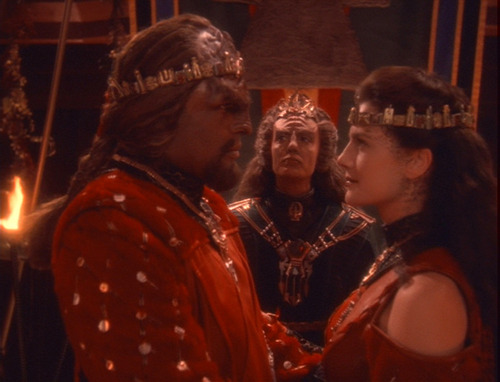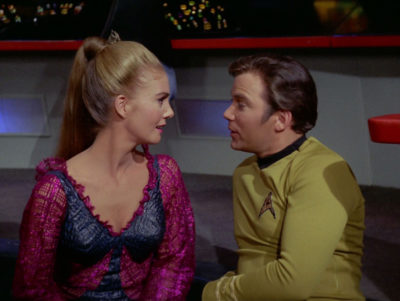“Day of the Dove” is a classic Trek episode with a strong message about the futility of war as well as how war is perpetuated through racism. We also get to see the first Klingon woman, and she’s pretty cool.
But before we get into that, we need to take a moment to talk about the TOS blackface Klingons.
The Klingons in TOS are classic examples of Orientalism, which is a Western way of perceiving and portraying the East (Arab and Asian cultures) as alien, exotic and uncivilized.
Eugene Wolters at Critical Theory writes:
The Klingons are the Dothraki of Star Trek — the scary, warmongering Other from the Heart of Darkness out in deep space. The great thing about imaginary black and brown people is that white sci-fi/ fantasy writers can project their repressed oriental fetishes onto a blank canvas without taking responsibility – “WHAT DO YOU MEAN IT’S RACIST, THERE’S NO SUCH THING AS KLINGONS OR DOTHRAKI! How can we be racist towards people WHO DON’T EVEN EXIST??” Funny how it’s always real black and brown people who have to play the role of the imaginary ‘non-existent’ warrior/tribal/primitive/race. (With the exception of the original Star Trek, which had white actors in blackface as Klingons.)
So basically we have a bunch of “dudes in blackface, wearing fu manchu moustaches” [source] and these racialized signifiers are used to tell the audience that the Klingons are an exotic, literally alien race. It’s also worth noting Fred Freiberger later defended the lack of people of colour playing aliens on TOS, saying:
Sticking to this racial thing, if we were going to other planets, seeing black people there would be kind of nutty, right? We would see green or blue. It wouldn’t be science fiction if they were black.
There’s a lot to unpack in there but at minimum, his statement is incredibly false given the number of TOS alien species – not just Klingons – who were shown as essentially white people in different costumes.
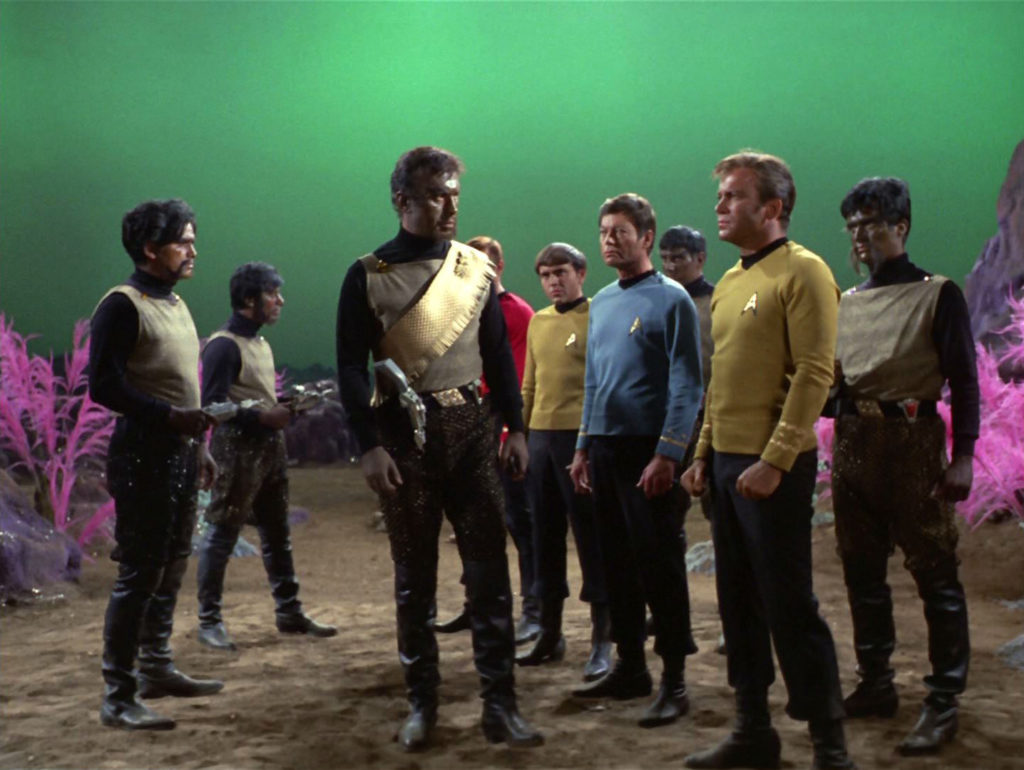
So the Orientalist racial dynamics underpin what we see in “Day of the Dove,” even though the explicit message of the episode is anti-racist.
The basic plot of “Day of the Dove” is that an alien spinning thingy tricks a group of Klingons and the Enterprise crew into believing they need to be at war with each other. It also controls their minds, provoking paranoia, xenophobia and allowing the entire cast to act at a level usually only attempted by Shatner.
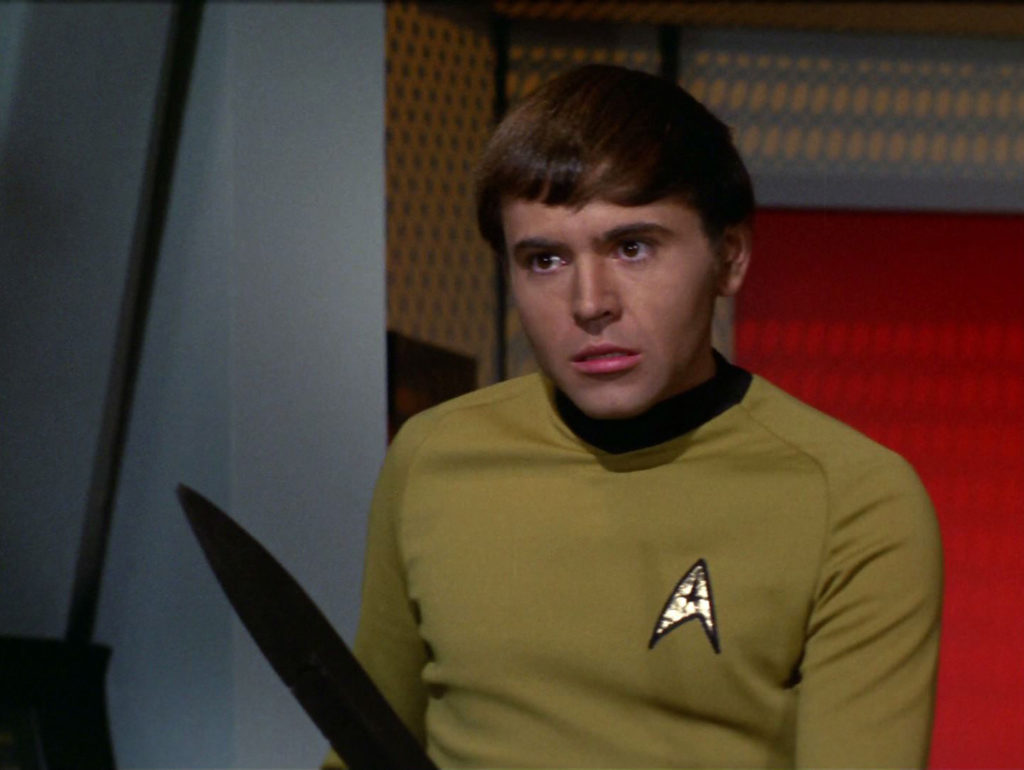
This means acting opportunities all around, including brief bridge scenes involving Uhura and Sulu, but most notable is Chekov, who is convinced the Klingons killed his (non-existent) brother and is determined to avenge them.
Oh, also he’s holding a sword because the alien light ball changed all their phasers into swords. So we get a lot of shipboard fights with less-than-convincing prop swords. But it’s fun.
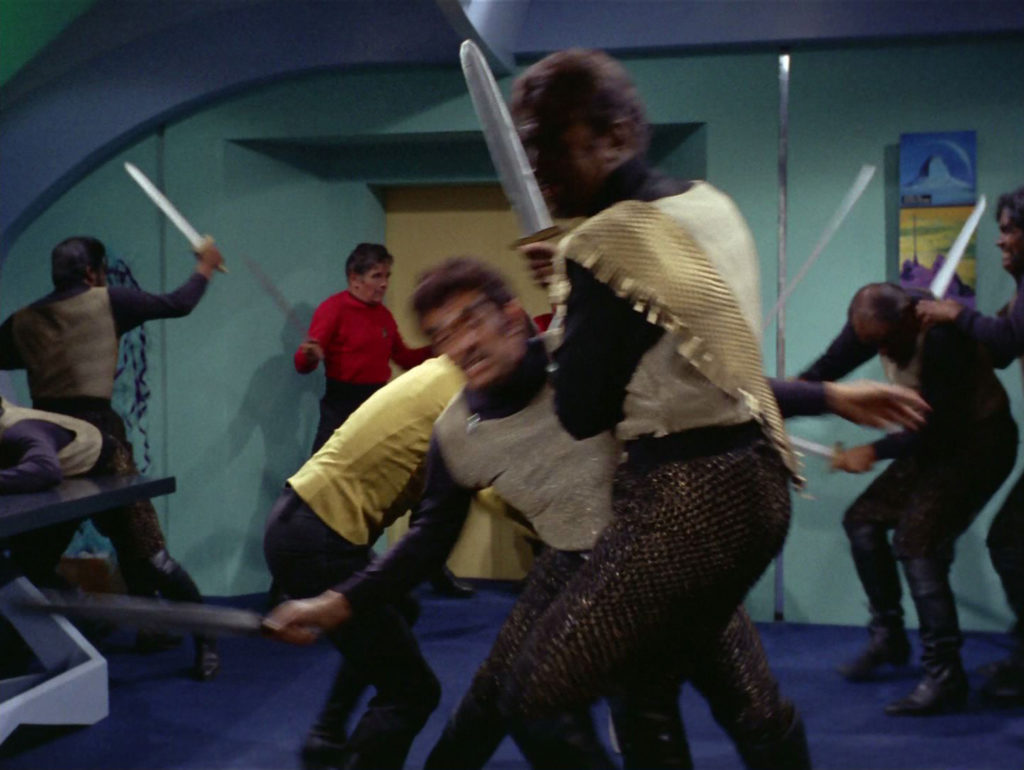
In a series of powerful scenes, the episode demonstrates how racism goes hand-in-hand with war – we see both sides citing propaganda about each other to justify their violence.
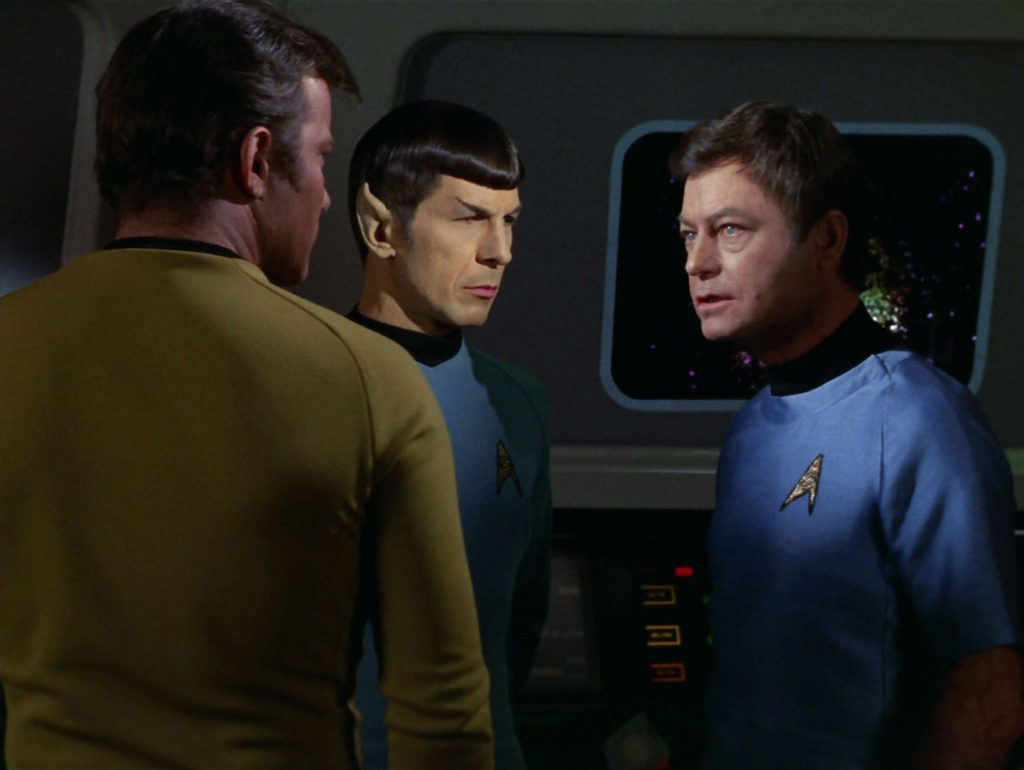
McCoy: Truce? Are you serious? I’ve got men in Sickbay, some of them dying. Atrocities committed on their persons, and you talk about making peace with these fiends? If our backs were turned, they’d jump us in a minute. And you know what Klingons do to prisoners. Slave labour, death planets, experiments! …While you’re talking, they’re planning attacks. This is a fight to the death. We’d better start trying to win it!
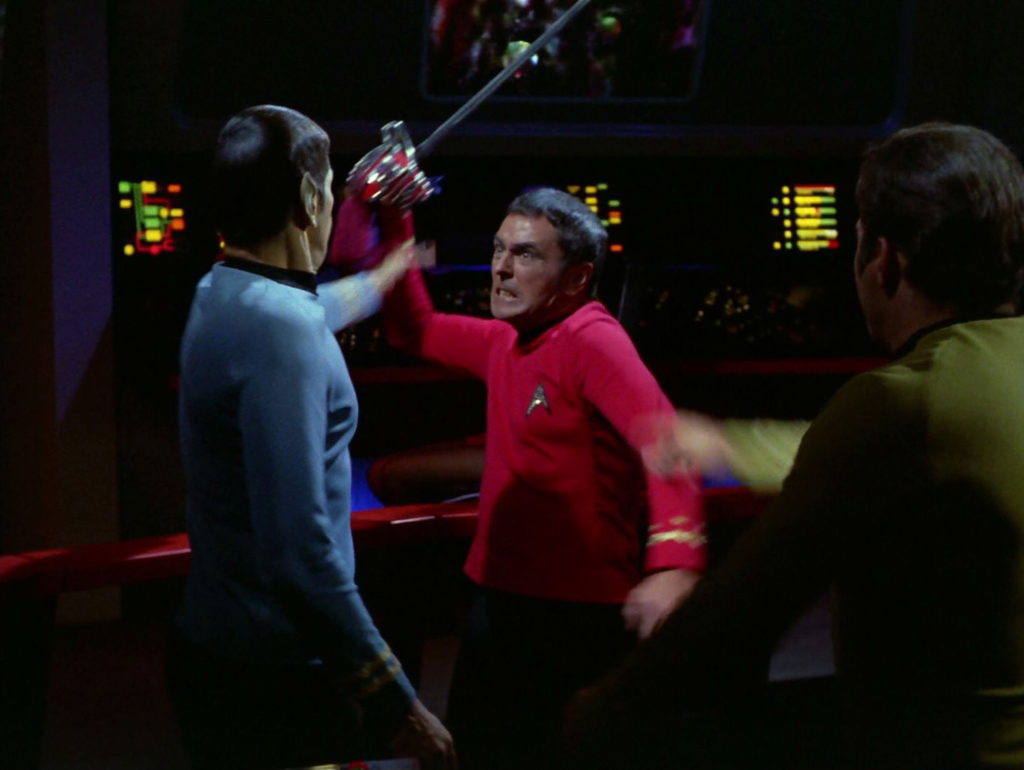
I particularly appreciated the scene where Scotty confronts Kirk on the bridge about the need for violent action against the Klingons. When Spock objects, he casts Spock as a racial “other” who also cannot be trusted:
Scotty: Keep your Vulcan hands off me. Just keep away! Your feelings might be hurt, you green-blooded half-breed!
Spock: May I say that I have not thoroughly enjoyed serving with humans? I find their illogic and foolish emotions a constant irritant.
Scotty: Then transfer out, freak!
Kirk breaks up the fight and delivers one of the key messages of the episode:
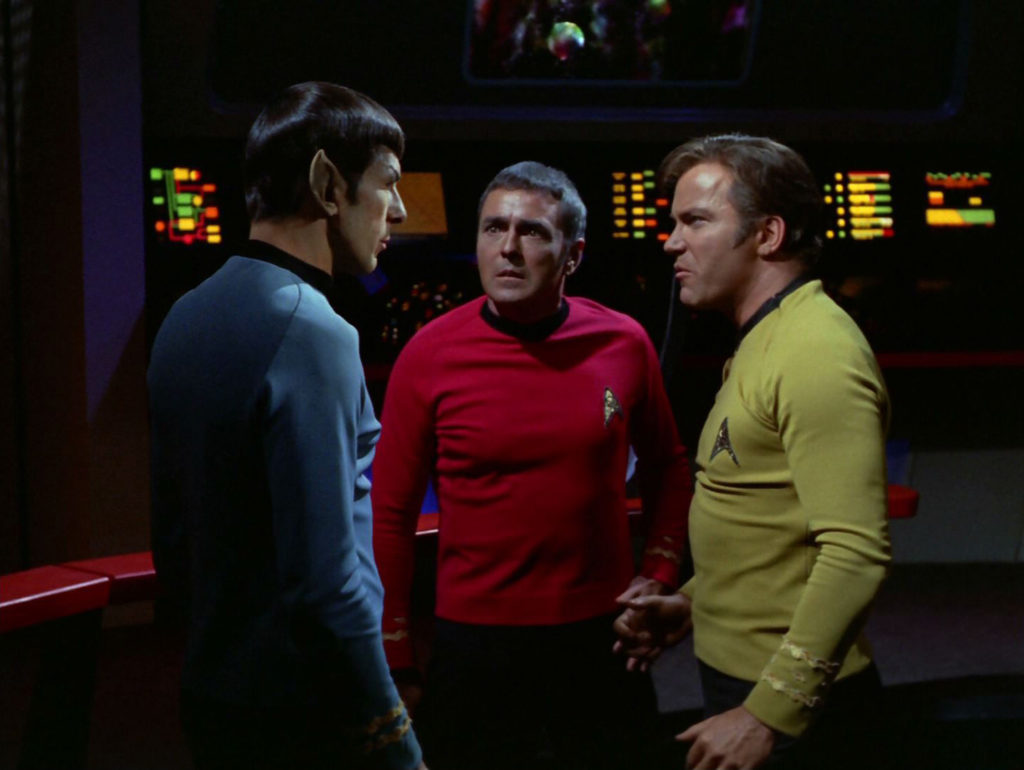
Kirk: Scotty. What’s happening to us? We’ve been trained to think in other terms than war. We’ve been trained to fight its causes, if necessary. Then why are we behaving like a group of savages? Look at me. Look at me. Two forces aboard this ship, each of them equally armed. Has a war been staged for us, complete with weapons and ideology and patriotic drum beating? Even…Spock…even race hatred?
And it’s impossible not to feel that this message is still incredibly relevant in the West today, at a time when Islamophobic attacks and anti-refugee sentiment are prevalent, when Donald Trump is a serious contender to be the next US President (Surak protect us).
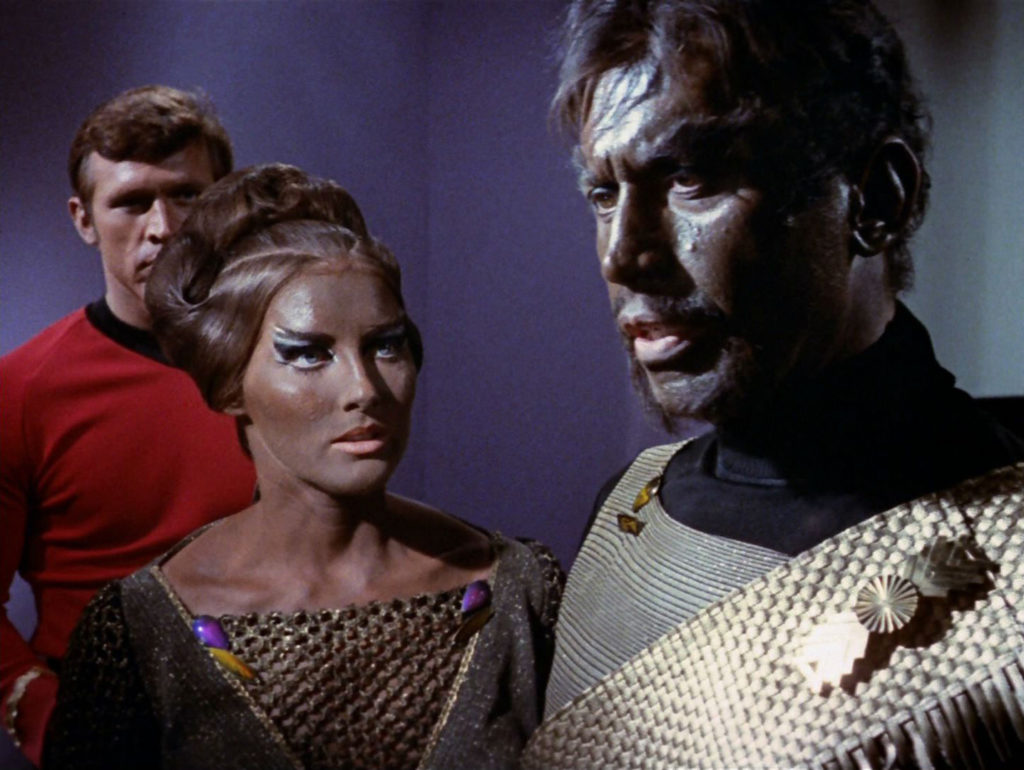
As I mentioned earlier, this episode introduces us to our first Klingon woman: Mara, Kang’s wife and science officer.
She’s pretty cool. She helps Kang access the Enterprise computers and figure out where they need to go to take control of the ship. Kang seems to treat her as nearly equal, and she is able to make her voice heard.
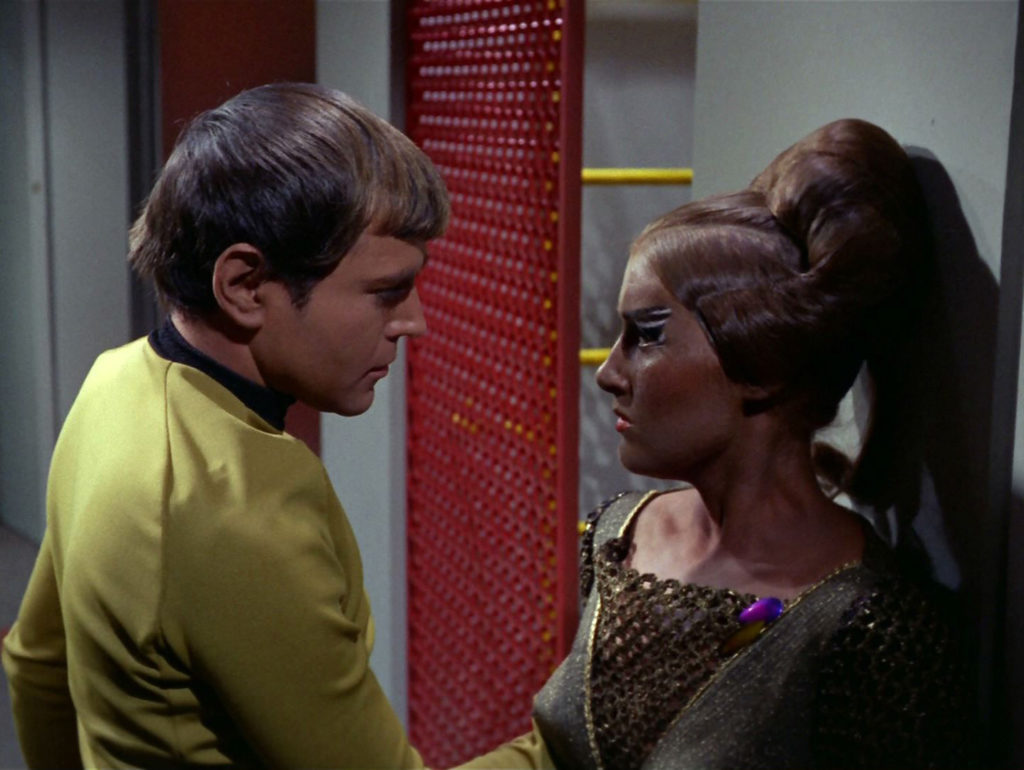
Later in the episode she goes to access a power control panel with another Klingon. Chekov attacks them, kills the Klingon man she’s with, and grabs her and holds her against the wall.
He whispers, menacingly, “You don’t die yet. You’re not human, but you’re very beautiful. Very beautiful.”
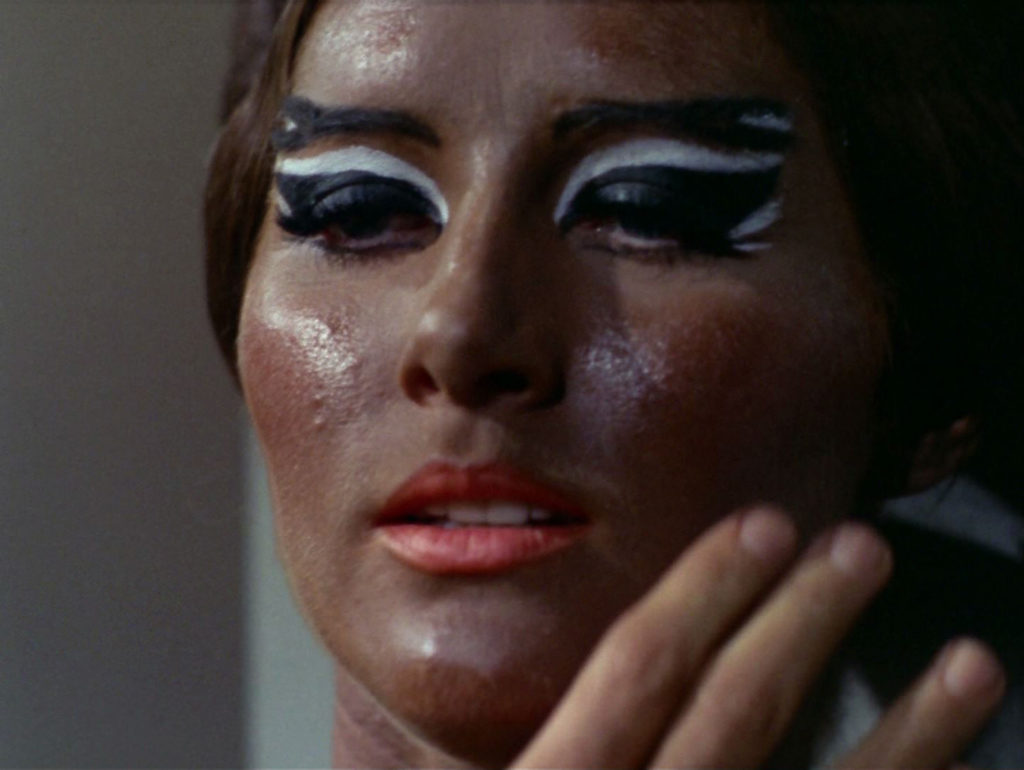
It’s a disturbing scene that shows a closeup of Mara’s face as Chekov rips her shirt, covers her mouth and forces her to kiss him. She does not fight back, as you’d certainly expect from a Klingon woman post-TOS.
But I’d argue the scene is justified because it helps us see the intersection of gender and racial oppression in war, and enables us to talk about how rape is frequently used as a weapon of war and genocide.
Later, Kang sees her torn shirt and makes the comment: “I see why the human beast did not kill you.” It’s not clear whether he means this to question her, but it is clear that Chekov’s attack on Mara, in the context of war and racism, was also an attack on Kang’s masculine authority.
But essentially, after her attack, Mara joins Kirk and Spock as one of the few rational parties left on the ship. She helps Kirk access Kang in order to convince him to stop the war, and she pleads with Kang to listen to Kirk.
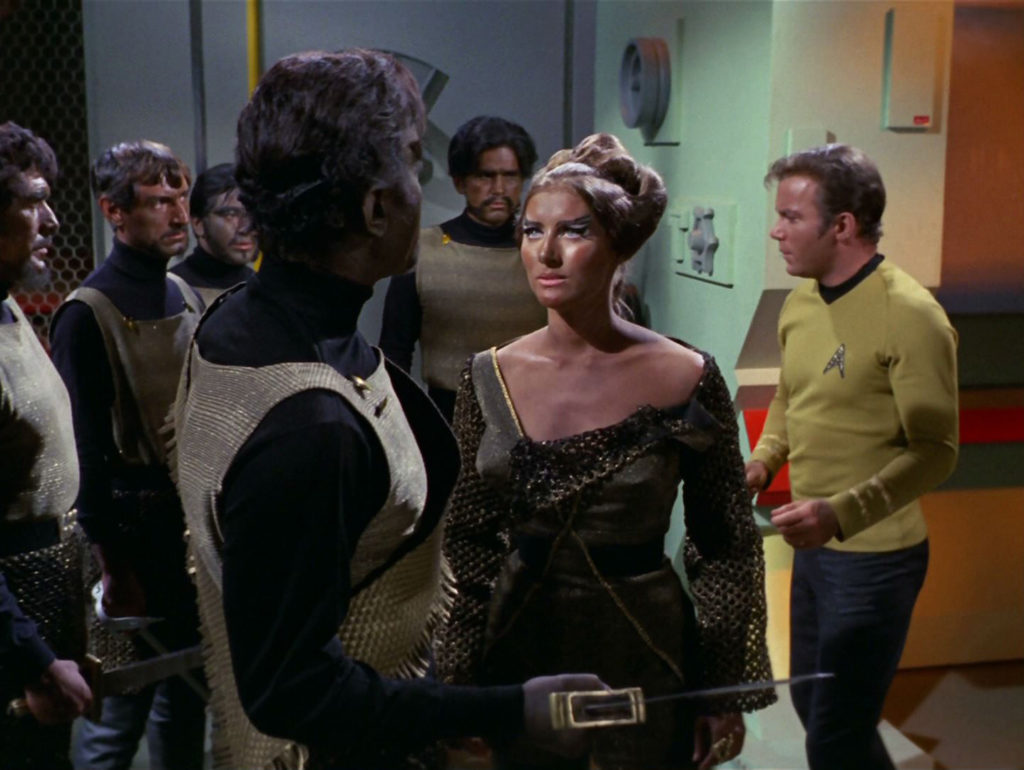
The cessation of violence weakens the alien and Kirk and Kang laugh at it until it leaves the Enterprise.
Overall, “Day of the Dove” is one of my favourite TOS “message” episodes for its strong writing; the presence of Mara as a rational, respected woman; Michael Ansara’s nuanced portrayal of Kang; and the opportunities the episode presents to discuss historical and contemporary social issues around war, race and gender.
Bechdel-Wallace Test: Fail










